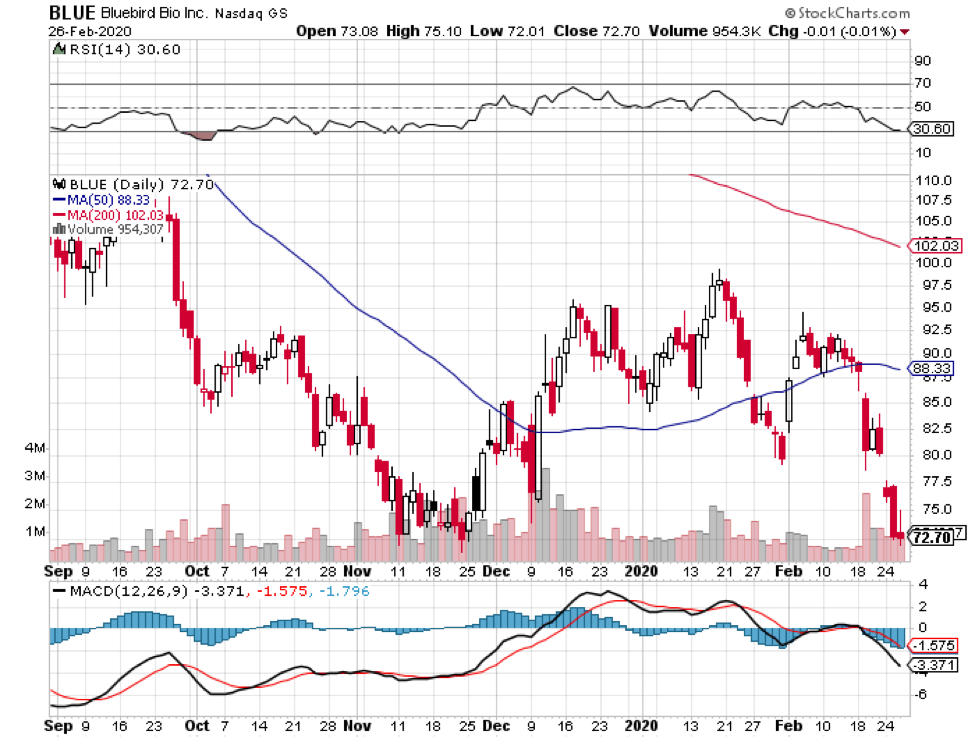Mining Gold in Niche Drugs
In 2019, approximately 1.8 million Americans were diagnosed with cancer. On a global scale, the total reaches almost 17 million. Hence, it comes as no surprise that over 700 biotechnology and pharmaceutical companies have been investing hugely in experimental cancer drugs.
Meanwhile, rare disease beta-thalassemia affects the lives of at least 1,000 or so patients in the United States alone. In a nutshell, people with this blood disorder do not have enough oxygen in various parts of their bodies.
Although beta-thalassemia is more prevalent in other countries, this disease impacts one in every 100,000 people. Given these numbers, you’d expect that only one or two biotechnology companies would be interested in looking for treatments.
By my last count though, I found at least a dozen biotechnology companies scrambling to come up with a drug for this rare disease.
While there may be a lot of underlying reasons for this focus on beta-thalassemia, one reason is the most obvious to me: beta-thalassemia is a lifelong disease that requires regular treatment throughout the life of the patient.
Among the biotechnology companies working on this sector, one name has emerged as the leader of the pact: bluebird bio (BLUE).
After unexpectedly doubling the price tag for gene therapy Zynteglo from the anticipated $900,000 to $1.8 million in Europe, bluebird bio (BLUE) announced that its expensive beta-thalassemia treatment will be available in the US sometime in the second half of 2020.
This gene therapy is the second most expensive treatment worldwide, with Novartis’ (NOVN) Zolgensma ranking first with a jaw-dropping $2.1 million price tag.
Following Novartis’ lead, installment plans will be offered to Zynteglo users.
While the details have yet to be ironed out, this bluebird bio gene therapy is expected to be paid over a period of five years. Notably, the patients will only pay for the treatment if it actually works for them.
That is, bluebird will not bind patients to pay the full $1.8 million if Zynteglo fails to alleviate their condition. They can even get reimbursements depending on the situation.
If successful, bluebird bio points out that Zynteglo can dramatically cut down not only on the financial burden of the patients but also reduce their suffering from the transfusions and treatments.
Here’s how this gene therapy works.
The first step is to harvest stem cells from the patient’s body. Then, chemotherapy is required to prepare the recipient’s bone marrow for gene therapy.
A healthy copy of the beta-globin gene, which is a component of hemoglobin, is subsequently implanted into the bone marrow and the body will be able to normally produce red blood cells.
If the patient’s body responds well to Zynteglo, then this means living over four years without the need for any transfusion.
In contrast, traditional treatments for this rare blood disorder include regular blood transfusions. There are also drugs needed to get rid of the extra iron from the patient’s system. At times, the spleen is even surgically removed.
Taking all these into consideration, bluebird bio defended its shocking price tag by pointing out that Zynteglo’s “intrinsic” value is actually worth $2.1 million.
This was calculated based on the claim that this treatment can deliver 22 quality-adjusted life-years to its users.
In effect, patients get a 15% discount on the total cost.
While it remains to be seen how the FDA will handle bluebird bio’s application for Zynteglo, the fact that this gene therapy has received approval in the European market gives the company its much needed push to pursue more innovative products geared towards rare diseases.
Apart from beta-thalassemia, Zynteglo is also being tested for another rare blood disorder called sickle cell disease.
Throughout 2019, bluebird bio’s income solely came from the license and royalty revenues derived from its collaboration with Celgene, which has since been acquired by Bristol-Myers Squibb (BMY).
The two companies worked together on cancer cell therapies called ide-cel and bb21217. Analysts estimate that both drugs could achieve blockbuster sales potential in the multiple myeloma sector.
Adding to Zynteglo and the cancer therapies in its pipeline is another rare genetic disorder gene therapy called Lenti-D.
This specifically targets cerebral adrenoleukodystrophy, which is a deadly genetic brain disease that affects 1 in 17,000 males. Bluebird bio is expected to seek FDA approval for Lenti-D by the second half of 2020.
Bluebird bio currently has a market cap of roughly $5 billion, which I think provides it plenty of room to maneuver and grow.
Since the lifeblood of any biotechnology company is its pipeline, I can see how well-positioned bluebird bio is in this aspect.
At this point, it already has a couple of winners in its portfolio with Zynteglo, Lenti-D, and the multiple myeloma drugs with Celgene.
With these in mind, it’s easy to see that bluebird bio will transform into a huge winner over the next 10 years or even earlier.



